We depend on our furnaces for our comfort and safety in cold months. For it to work when we ask it to is essential. So when a furnace keeps shutting off at inopportune times, homeowners find themselves wondering what to do. We here at HVACSeer.com have researched the subject for you and answered your questions below.
There are multiple causes to a furnace shutting off before its time—these range from faulty thermostats, corroded or dirty flame sensors, or low airflow. Low airflow can be fixed by cleaning components or replacing them if damaged. Cleaning or replacing is generally your option.
There's a lot to go into when dealing with proper furnace maintenance. Continue reading on down below as we delve more into how to stop your furnace from prematurely shutting off.
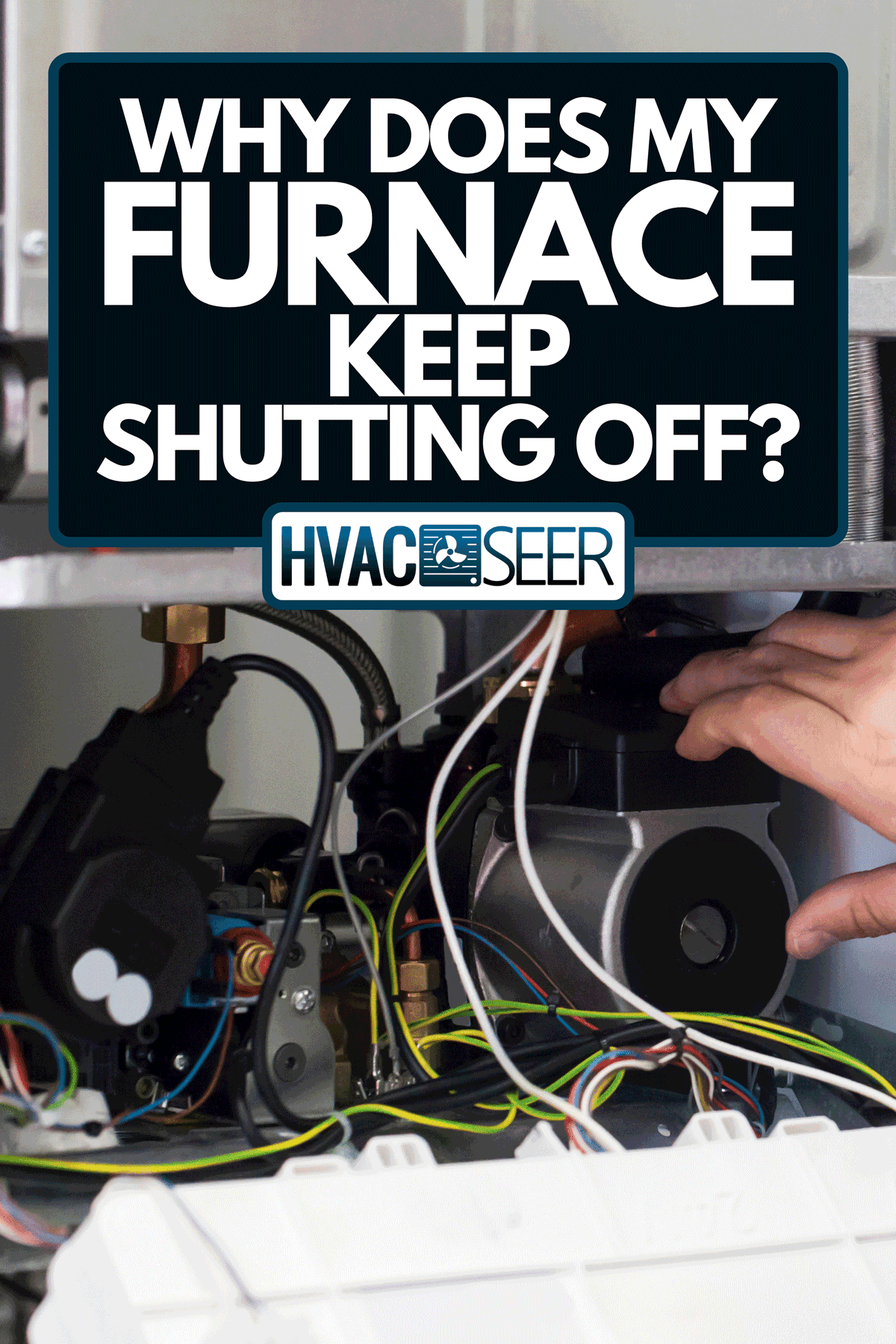
What does it Mean When a Furnace is Short Cycling?
Not only is your furnace shutting off too early a nuisance, but it's also a huge money sink. Your furnace may be suffering from many problems that will lead to a premature breakdown and crank up your heating bill in the meantime. If you leave your furnace untended for too long, you may need a total replacement.
Before tackling the problem with your short cycling furnace, you'll need to know what's up. Here are some of the main reasons your furnace shuts off too fast.
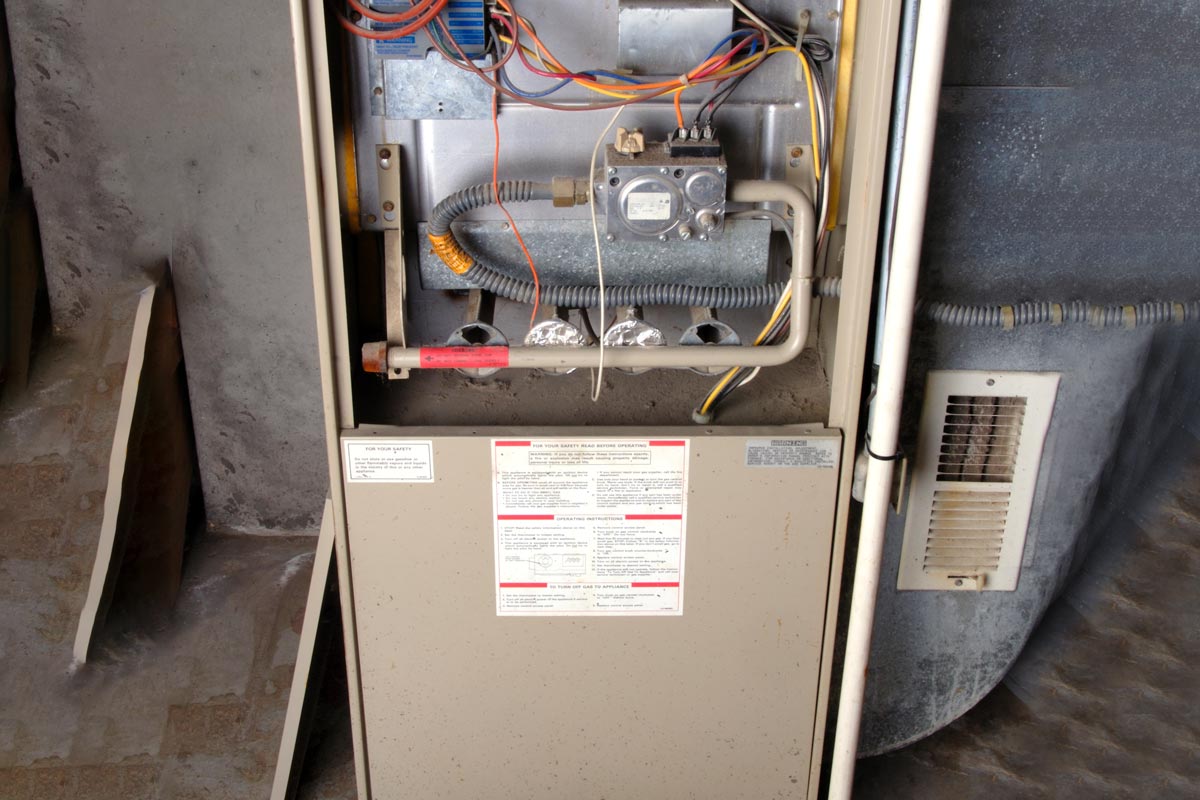
Not enough airflow
If your furnace keeps shutting off or cycling quickly, it could be a problem with low airflow. Several issues can cause this problem, and all lead to airflow problems.
Dirty air filters can lead to airflow restriction if you don't clean them often or well enough. Upon becoming clogged, your filters will retain more heat than usual, eventually causing your heat exchanger to overheat. We'll go more into how often to change your filters later on.
Your blower wheel is another component that can constrict airflow. The blower wheel pushes air through the use of rotating blades. Dirty, clogged blades will struggle to spin enough and could eventually stop altogether. Keep your air filters clean to help avoid problems with your blower wheel.
Maintaining and cleaning your furnace is of the utmost importance when it comes to keeping your system working properly. Many instances of restricted airflow are the result of a dirty or damaged system. Keep the space around your furnace free of clutter and clean to reduce risk.
Thermostats causing problems
Your thermostat is the control center, responsible for controlling your whole heating system. A malfunctioning furnace that keeps turning off might be victim to a faulty thermostat sending wrong signals. There are several issues your thermostat could be suffering from, leading to false signals.
Your thermostat's wiring could be faulty, it might need replacement batteries, or the location could be skewing the signals. Many homeowners don't think to consider the location of their thermostat, but it can play a critical role.
Some locations you'll want to avoid for your thermostat if installing it yourself are directly above heating grates, subject to direct sunlight near a window or in drafty hallways. All of these will affect its temperature readings before accurately assessing the rest of the house.
If you need to move your thermostat, there are ways to do it yourself at home. You can also hire a professional electrician if you aren't feeling capable yourself.
Your furnace is too big for your home
'Bigger is better' is a commonly held belief, but in the case of furnaces, it's simply not true. However, having a furnace that's too big for your home can actually lead to short-cycling problems. It's not pleasant to hear, but in the case of an ill-fitting furnace, full replacement is the best solution.
Some signs this might be your problem are the aforementioned short-cycling, rapidly fluctuating in-home temperatures, and pricy heating bills. Replacing the unit won't be cheap, but the money saved will add up over the long run.
How Long Should my Furnace Run Before Shutting Off?
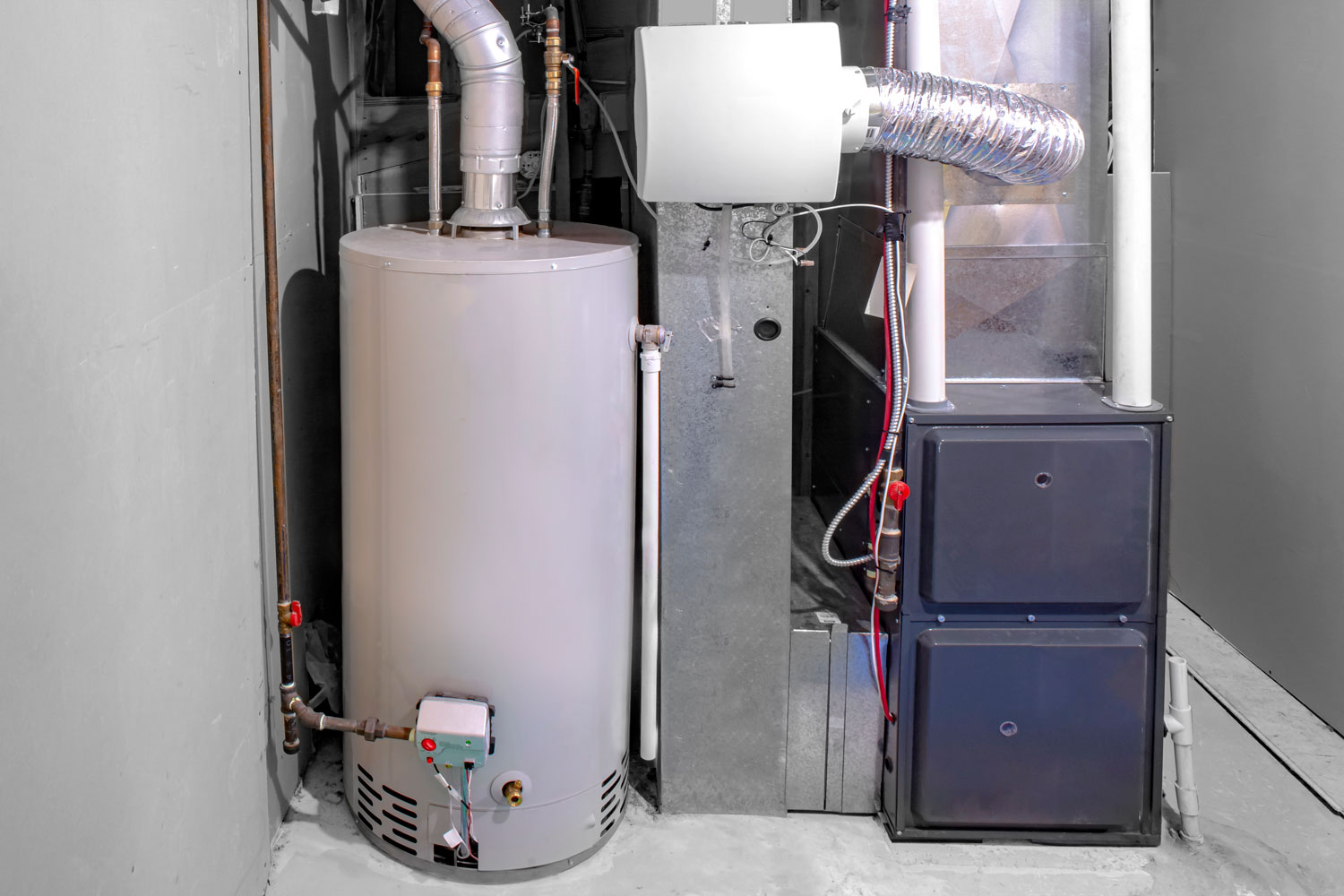
A furnace cycle is the length of time starting from when your furnace turns on to begin heating to when it turns off after your home reaches the specified desired temperature.
To understand a short cycle, you'll have to have a baseline for what's 'normal' for your furnace. There is some variance to this answer depending on factors like the weather and furnace size, but generally speaking, your furnace cycle should be anywhere from 10-15 minutes.
You should get 2-3 cycles per hour from your furnace. If you notice substantially shorter cycles occurring at greater frequency, get your furnace checked out immediately by a professional.
Read now on HVACSeer.com: 'What does furnace service typically include?'
How Often Should a Furnace Filter be Cleaned?
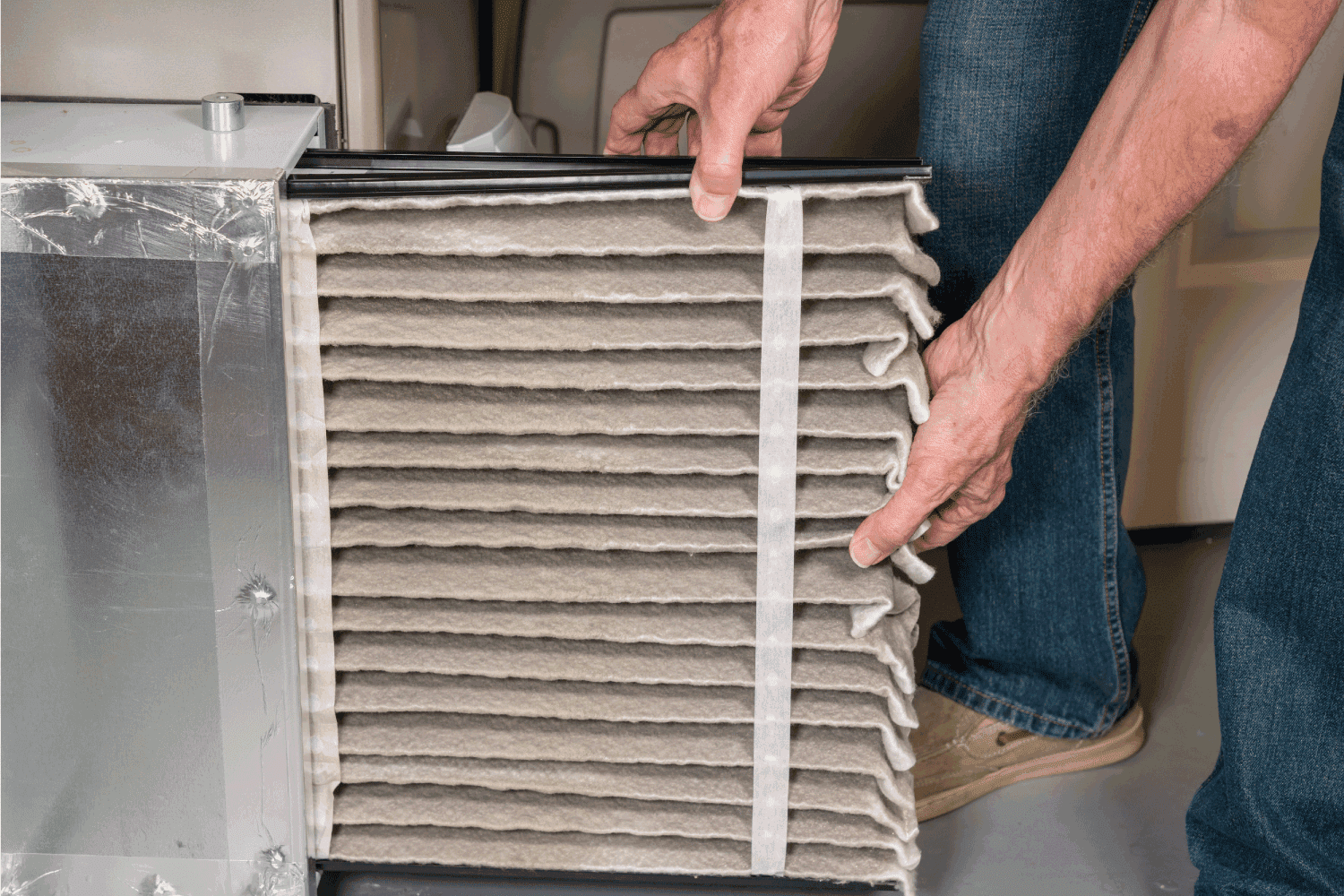
As stated above, the air filters are an essential part of your home furnace. Their maintenance and ability to work at their full potential go a long way in a fully functional system. We've listed all the reasons allowing them to get dirty is problematic, so how often should you clean them out?
It's, again, a question without a single definitive answer, but some apparent factors go into when you should change your filters. These include things such as who is in your house, the filter type you're using, and the amount of time your furnace spends in use.
Filter type in use
The type of filter you're using plays a role in how long they will last before needing to be replaced.
Filters come in cheaper fiberglass variants and more expensive pleated filters. Unsurprisingly, the less pricy fiberglass filters need changing out more often than the pleated filters. Fiberglass filters last around 30 days, while the pleated filters can go up to six months.
If you have electrostatic or washable filters, remove them once a month. After washing and drying them, you can safely reinstall them. These filters are much better for the environment and can last anywhere between five and ten years if adequately cleaned.
People and pets who live in your home
The stuff that gets clogged in your vents can vary depending on if you have pets or not. Shedding animals will quickly add to the amount of debris that can get stuck in your ducts to cause problems. If you notice your cat or dog shedding more at a certain time, it's a good time to check your vents.
If you have pets in the home, be prepared to change your filters more frequently. We recommend about every two months for pleated filters, or sooner if you have a number of pets in the household.
The people in your house also play an essential role in the timeframe. Mainly, if you have individuals suffering from asthma or severe allergies, relieve them of clogged-up vents and dirty air more frequently than you would otherwise. It would be best to change your filters every six weeks for homes with sensitive individuals.
How often your system is in use
It stands to reason that the more your system is in use, the more often you'll need to change out the filters. Filters that see heavy usage have more opportunities to collect debris and need to be changed out more often. Expect to change out your filters more often in summer and winter, when your system is on more often.
Read now on HVACSeer.com: 'How to clean furnace vents in 7 steps'
Do I Need to Change my Furnace Filter if it Doesn't Look Dirty?
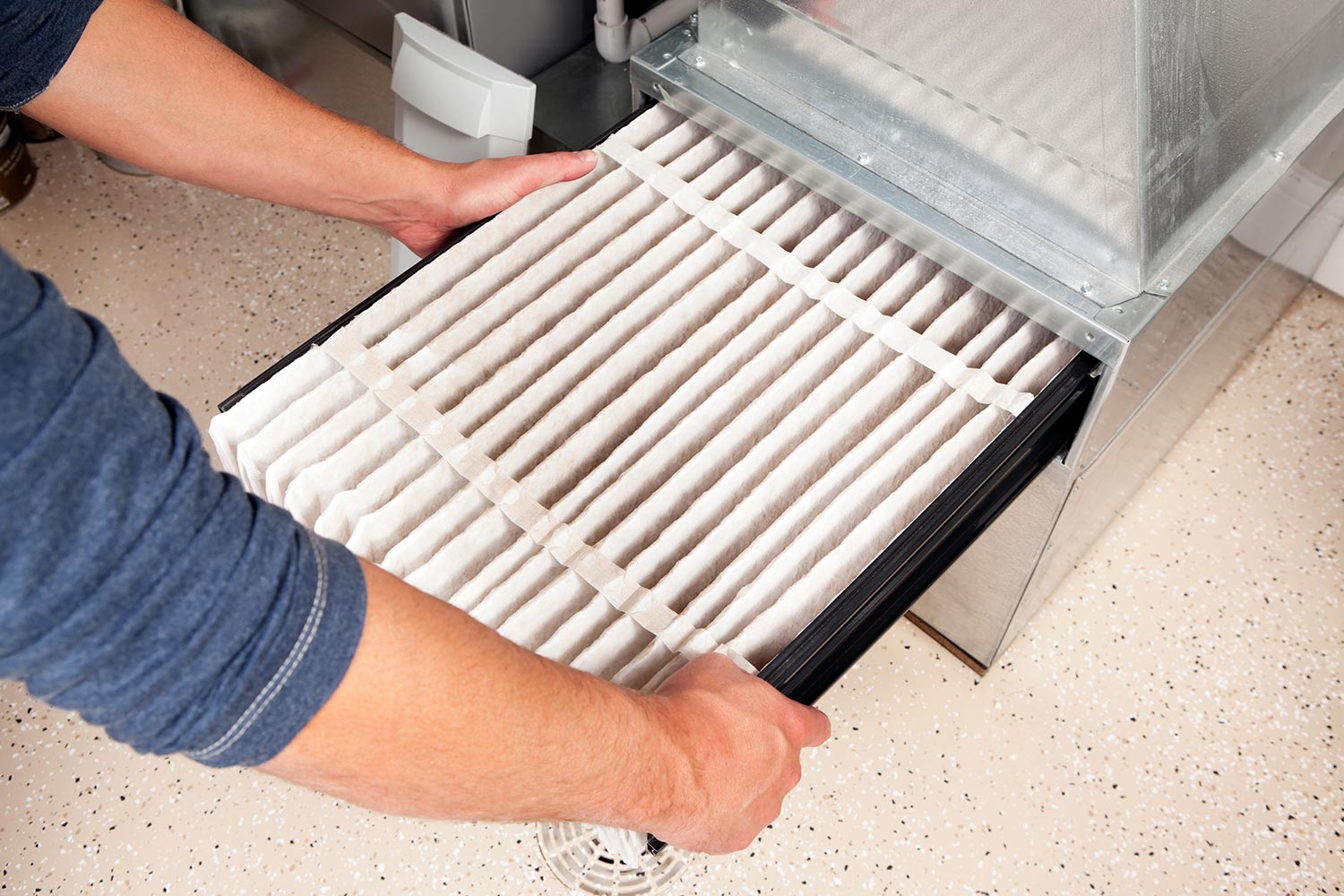
If your furnace filter is still looking clean after thirty, sixty, ninety days of use, it might seem like a good thing—no need to change out a clean filter after all. But a filter not getting dirty means it's not collecting debris, which could be for several reasons. It's work, but a dirty filter is ultimately a working filter.
Make sure you installed the filter correctly. Doing so means attaching it snugly but not too tightly. If your filter is too small or large for the area, you'll need to remeasure and find a better fit. Also, take care to install it the right way up. Most filters have arrows to indicate which way to install it, and an upside-down filter will act impaired.
If you've installed your filter correctly, it may ultimately be a problem with your AC or furnace unit. The unit may be impaired and unable to draw debris due to the damage. You're not going to want to let this problem persist, so get your unit checked out right away.
Remember, debris not caught in the filter remains elsewhere. Either in your home or your system.
In Conclusion
Your furnace is an essential part of comfortable home living. The challenges that come with its upkeep are worth it in the long run. Take the time to keep your family healthy and comfortable and your heating bills no higher than they need to be. It might seem like excess work now, but you'll thank yourself in the long run.
